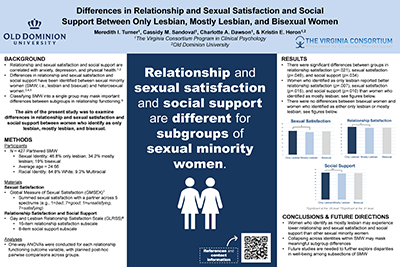ORCID
0000-0001-9094-2277 (Blake Gilmore), 0000-0003-3599-1417 (Yusuf)
College
College of Business (Strome)
Department
School of Public Service
Graduate Level
Doctoral
Graduate Program/Concentration
Public Administration and Urban Policy
Publication Date
2023
DOI
10.25883/80a1-t453
Abstract
This research examines how information and communications technology (ICT) has bolstered coastal resilience efforts across multiple sectors in coastal areas. Coastal vulnerability can be considered a wicked problem in society. Wicked problems are hard to define and solve and have broad social, economic, and environmental impacts. When dealing with wicked problems, planners have no right to be wrong since the outcomes can be detrimental and far-reaching. A closer look at coastal areas like those in coastal Virginia and the Caribbean highlights the constant need for policy and strategy toward feasible resilience solutions. Cross-sector partnerships and cross-disciplinary efforts are proven effective in tending to community resilience needs in coastal areas. Will this be the same for all sectors in coastal regions? Can all sectors thrive in cross-sector arrangements? This study delves deeper into answering the questions posed. The successes in ICT for resilience are seen in developed regions, with developing areas finding it harder to implement and sustain said solutions. This research uses extant models and literature to explain better how cross-sector and cross-disciplinary efforts work for ICT-driven coastal community resilience efforts. We examine the resilience threats and challenges based on a systematic literature review, followed by opportunities for ICT-driven frameworks across sectors. The study also incorporates data collected through interviews and culminates with tangible implications and recommendations for cross-sector practice and areas for future research. The findings from this study are helpful for ICT-driven coastal resilience planning and policy implementation in coastal communities, by highlighting lessons and best practices. The conclusions can further advance wicked problem theory, social-ecological systems theory, and the digital era governance models and planning in the public administration and policy field.
Keywords
Coastal resilience, Cross-sector planning, Information and communications technology
Disciplines
Development Studies | Environmental Studies | Public Administration | Science and Technology Policy
Files
Download Full Text (1.4 MB)
Recommended Citation
Blake Gilmore, Ren-Neasha and Yusuf, Wie, "Information and Communications Technology within Coastal Resilience Frameworks: A Multi-Phase Model to Guide Cross-Sector Planning" (2023). College of Business (Strome) Posters. 1.
https://digitalcommons.odu.edu/gradposters2023_business/1

Included in
Development Studies Commons, Environmental Studies Commons, Public Administration Commons, Science and Technology Policy Commons


